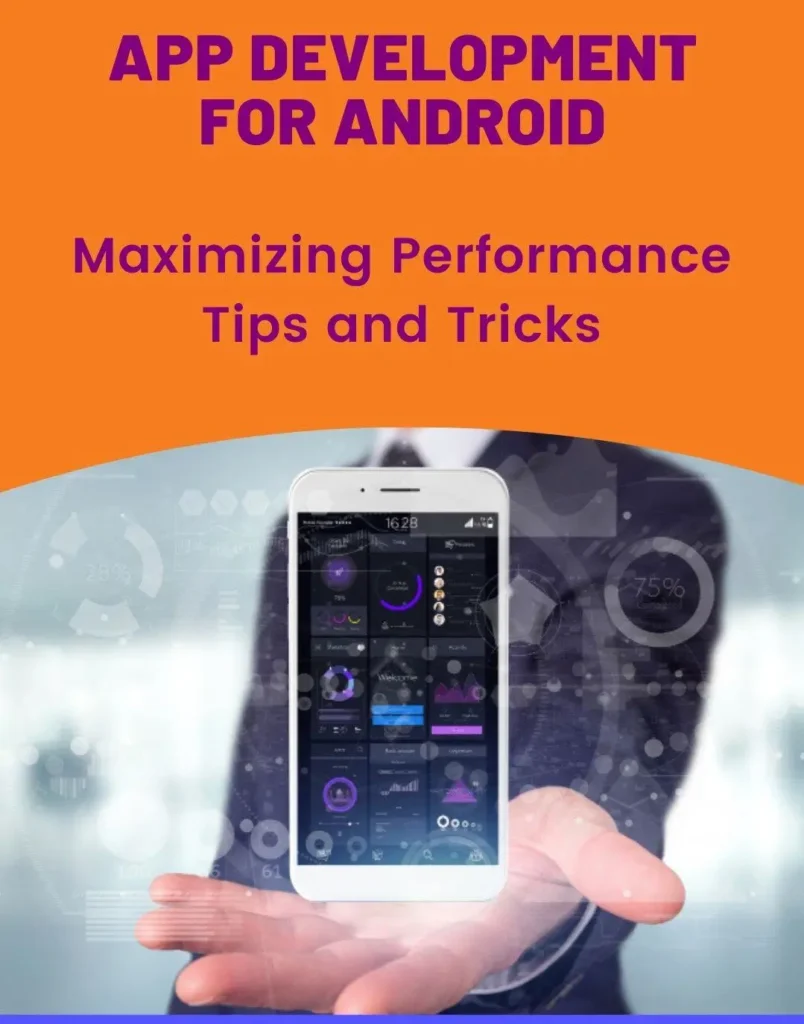App development for Android is a rewarding and challenging field that requires constant learning and improvement. The process of developing apps for devices running the Android operating system, such as smartphones, tablets, smartwatches, etc., is known as Android app development. App development for Android is important for developers and users because it can provide various benefits, such as innovation, creativity, functionality, accessibility, profitability, etc.
App development for Android is thriving due to its substantial market share. As of April 2021, Android dominated with a 72.2% global mobile operating system market share, leaving iOS behind at 26.72%. This vast user base emphasizes the need for expert guidance and tailored solutions. With over 3.48 million apps available on the Google Play Store as of March 2021, rising above the competition demands strategic thinking, user-centric design, and efficient coding practices. Moreover, the Google Play Store’s Q1 2021 revenue of over $11.6 billion from app downloads and in-app purchases highlights the lucrative nature of this domain.
Understanding the Android Platform

To embark on a journey of efficient Android app development, it’s crucial to comprehend the intricacies of the Android platform. Android, as an operating system, is known for its diversity. It runs on a multitude of devices, ranging from budget smartphones to flagship models, each with distinct hardware capabilities and limitations. These factors significantly influence the performance of an application. When venturing into Android application development, one must take into account these variations to ensure optimal performance across the board.
Android Studio and Programming Languages
The Android Studio is one of the most popular development environments for Android development. It provides developers with a powerful set of tools and resources for creating high-quality Android apps. Additionally, programming languages such as Java and Kotlin are commonly used in Android development. These languages offer a wide range of features and functionalities that can help developers optimize app performance.
Resource Files and Device Compatibility Overview
Resource files are an essential component of Android app development. They provide developers with access to a wide range of resources, including images, layouts, and strings. Additionally, a device compatibility overview is critical to ensure that the app is compatible with different devices. This feature helps developers identify potential compatibility issues and optimize the app accordingly.
Android Components and Device Selections
Android components, such as the camera, GPS, and accelerometer, can impact app performance in Android development. Developers need to consider these components when designing and optimizing their apps. Additionally, device selections are critical to ensure that the app is optimized for different devices. By selecting the right devices for testing, developers can identify potential performance issues and optimize the app accordingly.
Efficient Coding Practices

Efficient and optimized code is crucial for developing high-performance Android apps. Messy and inefficient code can slow down app performance and drain the battery. Adhering to best coding practices is essential for successful Android app development. Use appropriate programming languages, minimize resource-intensive operations, and implement effective memory management strategies. These practices create a more responsive and efficient application. Web Deve London provides professional expertise and tailored solutions for those seeking to excel in Android app development.
User Interface (UI) Optimization
The user interface (UI) is the first point of interaction between the user and the app. A well-optimized UI enhances user experience and contributes to the app’s overall performance. In Android application development, optimizing the UI involves aspects such as layout optimization, reducing overdraw, and utilizing efficient UI components like RecyclerView for lists. A streamlined UI not only enhances performance but also improves user engagement and satisfaction.
However, it’s also crucial to ensure that the user interface is user-friendly and easy to navigate. One way to achieve this is by implementing a user-friendly sidebar that enhances the overall user experience. By focusing on sidebar UX, developers can create a streamlined and intuitive interface that improves user engagement and satisfaction.
Network and Data Efficiency
Efficient handling of network operations and data is pivotal in Android application development. Excessive network requests and inefficient data handling can slow down the app and consume unnecessary resources. Techniques such as minimizing network requests, implementing caching mechanisms, and handling background processing judiciously contribute to a more efficient app. These practices are crucial for delivering a responsive application, especially in scenarios with varying network conditions.
Multithreading and Asynchronous Operations
Incorporating multithreading and asynchronous operations is a strategic approach to enhance app performance. Multithreading allows for parallel execution of tasks, preventing the UI from freezing during resource-intensive operations. Proper utilization of threading and asynchronous tasks is a vital aspect of Android application development. It helps deliver a more responsive and snappier user experience by ensuring that the UI remains smooth and interactive even during complex operations.
Profiling and Debugging Tools

Utilizing effective profiling and debugging tools is a fundamental aspect of Android application development. Tools like Android Studio, Android Profiler, and DDMS (Dalvik Debug Monitor Server) assist in identifying performance bottlenecks, memory leaks, and other issues that can hamper app performance. Profiling and debugging tools empower developers to optimize their code, leading to a more efficient and robust application.
Testing and Optimization on Real Devices
Testing an app on real devices is a critical step in Android application development. Real devices provide insights into how the app performs in a real-world environment. It allows developers to identify and address device-specific quirks, performance issues, and other potential problems. Testing on a range of devices is essential to ensure optimal performance and a cohesive user experience across various screen sizes and device selections.
App Size and Resource Management
App size and resource management are integral aspects of Android application development. A bloated app can be a turnoff for users and can adversely affect performance. Developers should focus on optimizing app size by compressing resource files and efficiently managing assets. By reducing the app size and managing resources effectively, the app’s performance and download speed can be significantly improved.
Continuous Monitoring and Improvement
The journey of Android application development doesn’t end with the app’s release. Continuous monitoring and improvement are essential for maintaining optimal performance. Feedback from users, analytics, and regular updates are crucial components of this process. By analyzing user feedback and monitoring app performance, developers can implement necessary optimizations, address issues, and continually enhance the app for a better user experience. Consider exploring building better apps to learn about successful app development strategies.
Conclusion
In the dynamic world of Android app development, performance is a key differentiator. At Web Deve London, we prioritize optimal app performance by embracing efficient coding practices, UI optimization, and continuous improvement strategies. Partner with us for your next Android app project and experience apps that excel in speed, responsiveness, and user satisfaction. As Java Champions in Android application development, we push boundaries to deliver exceptional app code and user experiences. In conclusion, Android app development demands constant learning and improvement. By understanding the platform, efficient coding, UI optimization, and more, developers can create high-quality apps. With the vast Android market, mastering this skill is valuable.







